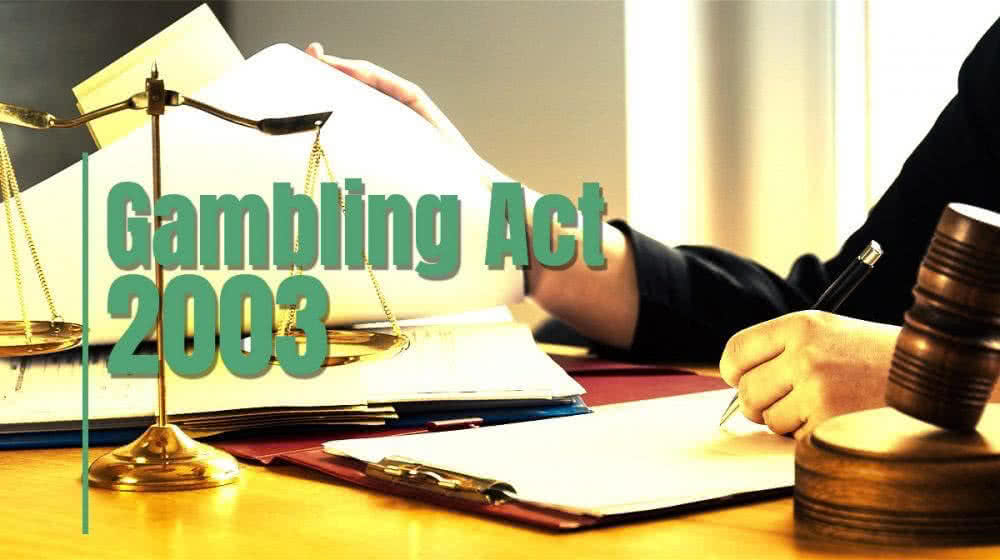Breakdown of the Gambling Act 2003
In 2003, the New Zealand government introduced the Gambling Act 2003 to regulate and control gambling activities in the country.
This act aimed to balance the economic benefits of gambling with the social and health risks it poses, and the gambling act has since made a large impact on gambling activity, casino operators, and virtually all stakeholders in the gambling industry that hold a betting or casino licence.
Here’s a bit of context about the act itself and what it means for the average Kiwi, the near future, and beyond.
Why The Act Was Put into Place
The primary reason for the introduction of the Gambling Act 2003 was to provide better protection for New Zealanders from the potential harms associated with gambling.
The government recognised that gambling could lead to addiction, debt, and other negative consequences for individuals and their families. Therefore, the act aimed to promote responsible gambling and reduce the harm caused by problem gambling.
Another reason for the introduction of the Gambling Act 2003 was to provide greater clarity and consistency in the regulation of gambling. The previous legislation was outdated and failed to address the complexities of the modern gambling industry.
The Gambling Act 2003 introduced new licensing requirements for gambling operators, which included background checks and ongoing monitoring to ensure that they complied with the act’s provisions.
The act also established the New Zealand Gambling Commission, which was tasked with overseeing and regulating the industry. The commission’s role was to ensure that gambling was conducted in a fair and transparent manner and to protect the integrity of the industry.
Gaming Machines
One of the most significant changes introduced by the act was the establishment of the Gambling Commission. This independent body is responsible for licensing and regulating all gambling activities in the country, including gaming machines.
The commission has the power to investigate and prosecute any illegal or unethical behaviour by gambling operators, which has helped to improve the overall integrity of the industry.
Another significant change was the introduction of a cap on the number of gaming machines allowed in each region. This cap is determined by the population size of the area and is designed to prevent the proliferation of gaming machines in vulnerable communities.
In addition, the act introduced stricter regulations on the location and operation of gaming machines, with a focus on minimising the potential harm they can cause.
Gaming Machine Results
Overall, the Gambling Act 2003 has had a positive impact on gaming machines in New Zealand. Since its introduction, there has been a reduction in the number of gaming machines in the country, and stricter regulations have been introduced to minimise the potential harm they can cause.
This has helped to ensure that gambling remains a safe and responsible activity for those who choose to participate.
However, there are still concerns about the impact of gaming machines and instant games on vulnerable individuals and communities.
It is important that the industry continues to be closely monitored and regulated to ensure that the potential harm is minimised and that appropriate support is available for those who need it.
Casino Gambling
A key action of the Gambling Act 2003 was the introduction of the Gambling Commission. This independent statutory body was established to regulate all gambling activities in New Zealand, including casino gambling.
The Gambling Commission is responsible for issuing licenses to casinos, ensuring they comply with the law and investigating any breaches of the legislation. Casinos were required to:
- Be licensed and regulated by the Department of Internal Affairs
- Implement measures to prevent money laundering and other criminal activities
- Provide information about problem gambling and support services to players
- Limit credit extended to players
- Limit the number of gaming machines and tables they can operate
- Contribute to a problem gambling levy to fund problem gambling services
Another key change was the introduction of player protection measures.
Casinos are now required to provide a range of support services to help problem gamblers, including self-exclusion programs, counselling services, and information about responsible gambling practices.
They are also required to monitor and report on the gambling habits of their customers to identify and address any potential issues.
The Gambling Act 2003 also introduced stricter rules around the operation of gaming machines, commonly known as pokies.
These machines are now required to be operated in designated areas within casinos, and their use is tightly regulated. Casinos must also display information about the odds of winning on each machine, and players must be able to set their own betting limits.
Overall, the Gambling Act 2003 has had a positive impact on the casino gambling industry in New Zealand.
The introduction of the Gambling Commission and player protection measures have helped to promote responsible gambling and reduce problem gambling. The tighter regulation of gaming machines has also helped to create a safer and fairer gambling environment for all players.
Internal Affairs
The Department of Internal Affairs was given the responsibility of regulating and enforcing the Gambling Act 2003. It oversees the licensing and monitoring of gambling operators and investigates and prosecutes illegal gambling activities.
The Department of Internal Affairs is the government agency responsible for administering the Act and ensuring that it is enforced.
The Department’s role is to regulate and oversee the conduct of gambling activities in New Zealand, including licensing and monitoring gambling operators and investigating and prosecuting illegal gambling activities.
One of the key objectives of the Gambling Act 2003 is to promote responsible gambling and reduce the harm that can arise from gambling.

More Responsibilities
The Department of Internal Affairs is responsible for ensuring that gambling operators comply with the Act’s provisions on harm minimisation, which include measures such as providing information to customers about the risks of gambling and offering self-exclusion programs for problem gamblers.
The Department of Internal Affairs is also responsible for issuing licenses to gambling operators, including casinos, racing clubs, and gaming machine operators. Before granting a license, the Department assesses the applicant’s suitability to operate a gambling business and their ability to comply with the Act’s provisions.
In addition to licensing and monitoring, the Department of Internal Affairs has the power to investigate and prosecute illegal gambling activities through territorial authorities.
This includes activities that are not authorised under the Act, such as running illegal gambling operations, unlicensed online gambling, and other forms of illegal gambling.
Overall, the Department of Internal Affairs plays a vital role in regulating and enforcing the Gambling Act of 2003 in New Zealand.
Its responsibilities include ensuring that gambling activities are conducted in a responsible and transparent manner, protecting vulnerable individuals from harm, and maintaining the integrity of the gambling industry.
Much of the related information can be found on the New Zealand legislation website about bodies such as the New Zealand lotteries commission and the gambling commission.
The Impact on New Zealand
The Gambling Act 2003 has had a significant impact on New Zealand’s gambling industry and society as a whole. Some of the key effects of the act include:
- A decrease in the number of gaming machines and gambling venues, particularly in areas with high levels of problem gambling.
- Increased public awareness of the risks of gambling and the availability of support services for problem gamblers
- An increase in the number of people seeking help for problem gambling.
- A decrease in the amount of money lost to gambling by New Zealanders.
- Increased funding and net proceeds from community programs for problem gambling services through the problem gambling levy.
- Improved regulation and monitoring of the gambling industry to prevent criminal activity and minimise the harm caused to vulnerable groups.
To Summarise
In summary, the Gambling Act 2003 was introduced to regulate and control gambling activities in New Zealand.
It has brought significant changes to the gambling industry, particularly in the areas of gaming machines, prize competitions and casino gambling.
The act has also had a positive impact on New Zealand society, by raising public awareness of the risks of gambling and providing support for problem gamblers.

With over a decade of experience in the iGaming sector and a robust legal background, Isabella Smith offers unparalleled insights into the intricacies of online casino regulations. Her articles are a must-read for players seeking a trusted voice in iGaming.
Read more about the author